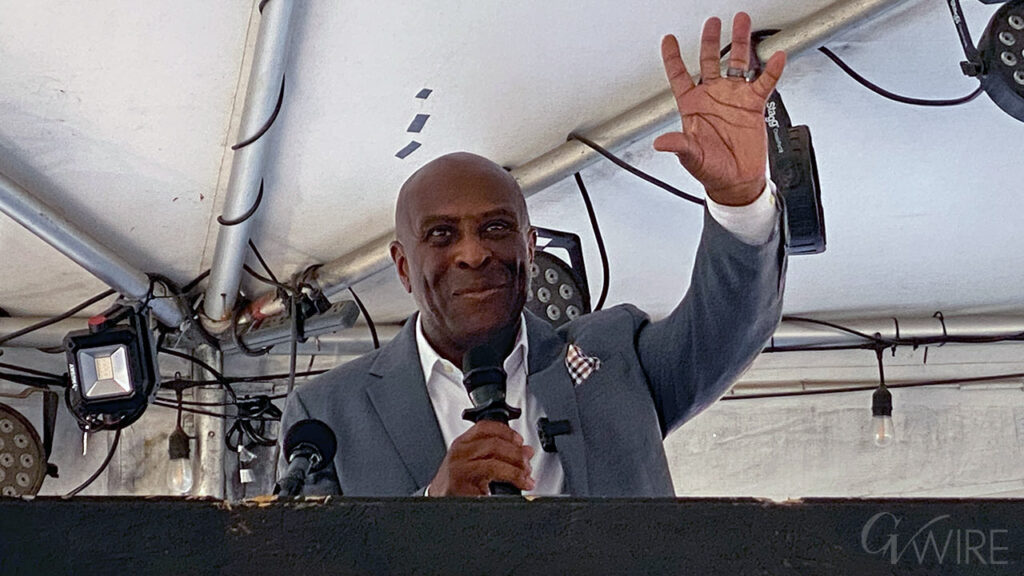FILE — The headquarters of the U.S. Department of Labor in Washington on June 12, 2020. A plan by the Biden administration would phase out a provision that allows employers to pay workers with disabilities less than the federal minimum wage. (Ting Shen/The New York Times)

- Labor Department aims to end program allowing sub-minimum wage for disabled workers over three years.
- Disability rights advocates argue the practice perpetuates economic inequality and prevents financial independence.
- Some parents and caregivers express concerns about potential loss of work opportunities and Social Security benefits.
Share
|
Getting your Trinity Audio player ready...
|
The Biden administration on Tuesday moved to end a program that has for decades allowed companies to pay workers with disabilities less than the minimum wage.
The statute, enacted as part of the Fair Labor Standards Act of 1938, has let employers obtain certificates from the Labor Department that authorize them to pay workers with disabilities less than the federal minimum wage, currently $7.25. The department began a “comprehensive review” of the program last year, and on Tuesday it proposed a rule that would bar new certificates and phase out current ones over three years.
“This proposal would help ensure that workers with disabilities have access to equal employment opportunities, while reinforcing our fundamental belief that all workers deserve fair compensation for their contribution,” Taryn Williams, assistant secretary of labor for disability employment policy, said on a call with reporters.
As of May, about 800 employers held certificates allowing them to pay workers less than minimum wage, affecting roughly 40,000 workers, said Kristin Garcia, deputy administrator of the Labor Department’s wage and hour division.
Those figures reflect a steep decline in employers’ reliance on the program in recent years: The number of workers with disabilities earning less than the minimum wage dropped to 122,000 in 2019 from 296,000 in 2010, according to a report published last year from the Government Accountability Office.
Since 2019, more than half of workers employed under this program earned less than $3.50 an hour, according to the report.
Related Story: California AG Charges Construction Firm With Felony Wage Theft and Tax Evasion
The Labor Department’s proposed rule, even if it is finalized, faces several hurdles. It is likely to confront legal challenges and could be reversed under the incoming Trump administration. There has been debate about whether the department has authority to alter the program or if that power rests solely with Congress.
Many disability rights advocates have pushed for years to end the practice, arguing that it perpetuates economic inequality and prevents those with disabilities from affording basic goods without government assistance or other forms of financial support. Several states have banned or restricted the practice.
Certificates allowing employers to pay less than the minimum wage are “inherently based on a deeply flawed, false, ableist notion that disabled workers’ labor and contributions are less valuable than the labor and contributions of their nondisabled peers,” Maria Town, president of the American Association of People With Disabilities, said in a statement. “The ideas on which these certificates are based have no place in our modern society and workforce.”
Related Story: Thousands of University of California Workers Go on 2-Day Strike Over Wages, ...
Some parents of adults with disabilities, however, have urged for the program to remain in place, raising concern about a potential loss of work opportunities or Social Security benefits.
The Coalition for the Preservation of Employment Choice, a group of families, caregivers and others who are pushing for the program to stay in effect, did not immediately respond to a request for comment on the Labor Department’s proposal. But the group has argued that eliminating the statute would reduce the number and diversity of employment opportunities for people with disabilities.
Opportunities for workers with disabilities to obtain employment at the full minimum wage have “dramatically expanded” in recent decades, Garcia said. These changes to the employment landscape factored into the department’s conclusion that issuing certificates for pay below the minimum wage was no longer necessary, she said, adding that the proposed rule would increase purchasing power and independence for workers with disabilities.
The department said it would review public comments on the proposal until Jan. 17.
—
This article originally appeared in The New York Times.
By Danielle Kaye/Ting Shen
c.2024 The New York Times Company




















